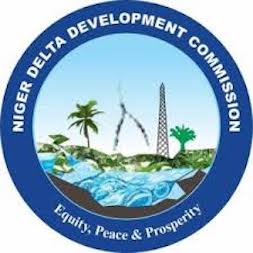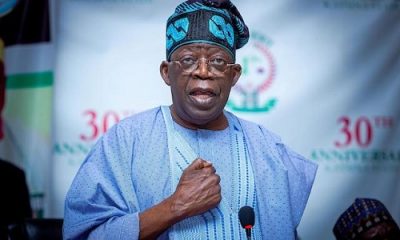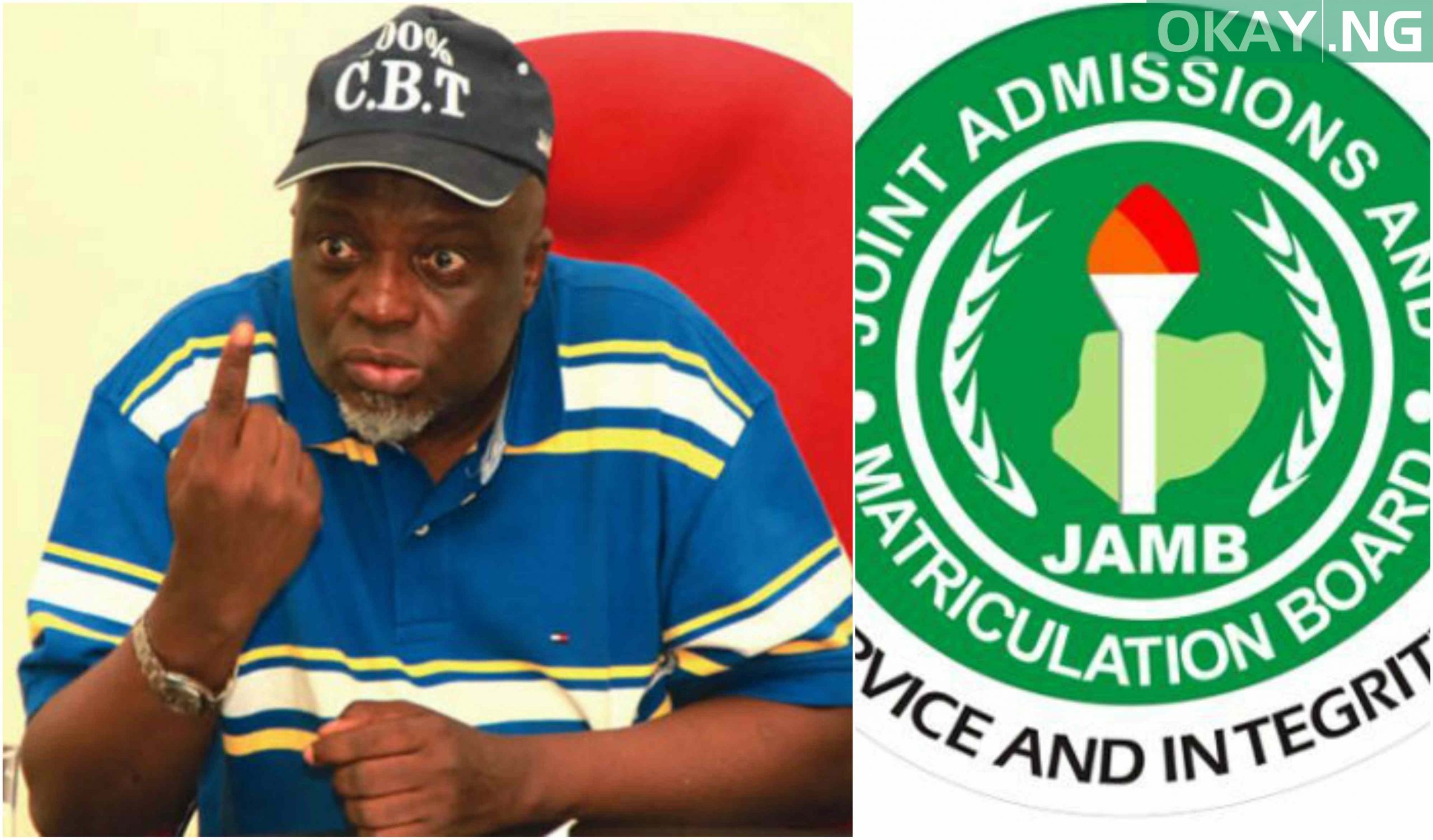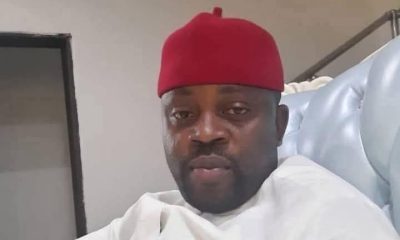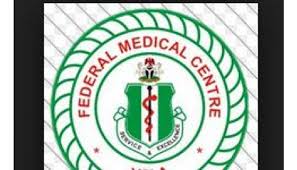Health
Workforce migration is affecting global healthcare system – Sen. Oloriegbe
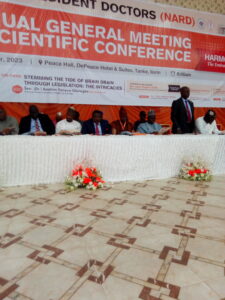
Sen. Ibrahim Oloriegbe, the Chairman, Senate Committee on Health, 9th Assembly, says the migration of workforce has affected global healthcare system.
Oloriegbe stated this in Ilorin while delivering a paper presentation at the 43rd Annual General Meeting (AGM) and Scientific Conference of the Nigerian Association of Resident Doctors (NARD).
The theme of the weeklong conference is: “Postgraduate Medical Training in Nigeria: Achievements, Limitations, Innovations and Prospects”.
Oloriegbe spoke on the topic: “Stemming the Tide of Brain Drain Through Legislation: The Intricacies”.
He said that all sectors in the country were being affected by migration of workforce, noting that it is not only Nigeria that is witnessing the trend.
He underscored the need for positive solutions to the critical issue of brain drain affecting Nigeria and other developing nations.
According to him, virtually all fields in the healthcare system is affected by Japa (workforce migration) syndrome, including clinical services, pharmacy, nursing and lab technicians.
The expert observed that the situation would infringe on the attainment of the Sustainable Development Goal (SDG) on Health 2030.
He explained that the SDG aimed at achieving universal health coverage, and providing access to safe and affordable medicines and vaccines for all.
He listed the factors promoting migration of workforce to include poor remuneration, work overload, job stress, issue of insecurity and lack of working tools and facilities.
Oloriegbe explained that for healthcare system to be ideal, it must be available, accessible, acceptable and of quality.
He regretted that the developing countries used their resources and manpower to train manpower but ended up losing them to developed nations to enjoy.
“This means Nigeria is not benefiting the services of their efforts. The destination country are the ones getting all the benefits,” he lamented.
Oloriegbe therefore advocated bilateral agreement between workforce importing and exporting countries on compensation, stating the need for better salary pay, incentives, loans and better allocation to equip hospitals.
Also in his presentation, Prof. Biodun Alabi, the Provost, College of Health Sciences, University of Ilorin, emphasised the importance of residency programme, uring for practical experience and technical skills required by trainees to become full-time doctors.
The don spoke on the topic: “Postgraduate Medical Training in Nigeria: Achievements, Limitations, Innovations and Prospects”, and observed that though the training was tough and expensive, ‘’there is need for good mentorship’’.
Alabi enjoined the government to give more attention to improved funding of residency and ensure doctors were better remunerated to avoid strike actions.
Mr Kayode Alabi, the Kwara Deputy Governor, commended NARD for contributing towards the healthcare system in the country.
He, however, appealed to the doctors against migrating from the country, adding that Gov. AbdulRahman AbdulRazaq had been demonstrating commitment in revamping the healthcare system in the state.
Earlier, Dr Emeka Orji, the NARD President, explained that the AGM afford the entire membership of the association another opportunity to take stock and assess progress made in the last year.
Orji added that it is time to review the numerous welfare challenges bothering members, recount success and strategise on how to address outstanding ones.
Dr Mubaraq Ijaiya, the President of Association of Resident Doctors, University of Ilorin Teaching Hospital (ARD-UITH), said the need for re-evaluation of medical training process towards having a proven system was overdue.
Health
FG Promises Access To Eye Care For Every Nigerian

Dr Iziaq Salako, the Minister of State for Health and Social Welfare says the Federal Government will ensure that every Nigerian has access to the eye care they need.
Salako said this in Abuja on Thursday at the Eyeball Summit organized by the Optometrists and Dispensing Opticians Registration Board of Nigeria (ODORBN).
The summit’s theme was “Shaping the Future of Eye Care in Nigeria: Strengthening Systems Through Strategic Alliances”.
According to Salako, the theme is quite apt and aligns with the ministry’s current line of investment in the health sector.
He said that it also aligned with the overall goal of the Renewed Hope Agenda to ensure that Nigerians are provided with the healthcare they need at any point in time without financial hardship.
He said that in the face of rising challenges, such as the increasing burden of visual impairment and the growing demand for eye care services, the ministry may not address the issue of eye health in isolation.
“By working together, we can ensure that every Nigerian, regardless of their geographical location or economic status, has access to the eye care they need.
“This summit serves as an important platform to collectively strategise and propose concrete solutions that can strengthen the eye care system in Nigeria.
“It can not be optimally productive without strategic alliances, collaboration and cooperation.
“It is through partnerships that we can pool resources, share expertise and develop innovative solutions to overcome the gaps in eye care provision,” Salako said .
According to him, it will include increasing awareness about the importance of regular eye check-ups, ensuring that the necessary infrastructure and human resources are in place to support the delivery of services.
He said that the partnership would also promote eye health friendly policies and provide continuous professional development training to ensure that eye health care givers are up to date in their knowledge and skills.
“The government is committed to ensuring that you have the necessary tools, policies, and an enabling environment to carry out your work effectively.
“Under this administration, we will continue to expand access to affordable eye care services, which are critical in a country where a large proportion of the population live in underserved areas,” he said.
Dr Obinna Awiaka, Registrar of the board, said that the summit was, a testament to their collective commitment, resilience, and aspiration.
Awiaka said that it symbolised the board’s relentless pursuit of excellence, the prioritisation of knowledge, innovation, partnership, and an unyielding devotion to preserving and enhancing the gift of sight for all Nigerians.
According to him, in an era marked by rapid technological change, shifting patient needs, and complex healthcare challenges, it is imperative that the custodians of vision health, stay ahead of the curve.
“We must constantly evolve, embracing innovation while upholding the highest ethical and professional standards.
“The theme speaks to a fundamental truth: No single entity, no matter how skilled or committed, can achieve transformative change alone,” he said.(NAN)
Health
FG Pledges Mentorship, Leadership Support For Boy Child

The Ministry of Youth Development has reaffirmed its commitment to creating platforms that promote mentorship and leadership development for the boy child.
Mr Ayodele Olawande, Minister of Youth Development, said this on Friday in Abuja during a news conference to commemorate the International Day of the Boy Child.
The day is marked annually on May 16, with the 2025 theme, “Boys’ Mental Health and Well-being.
”Olawande stated that the government believed every boy, regardless of background or economic status, deserved quality mentorship to help him thrive.
“As a government, we are committed to creating platforms that promote mentorship and leadership development for the boy child.
Through initiatives like this, we can provide them with the support they need to succeed,” he said.The minister emphasised that the goal was to empower Nigerian youth, including boys, with the skills, knowledge, and opportunities necessary for success.
“In today’s world, many fathers have little time for their children, especially their sons. This can negatively impact their development and well-being,” Olawande noted.
He stressed the importance of mentorship in filling that gap: “Without positive male role models, many boys struggle to develop the skills and values needed to become responsible, productive members of society.”
He added that mentorship offered guidance, support, and helped boys build self-confidence, make sound decisions, and form positive relationships with adults.
Olawande also acknowledged the United Nations for recognizing the significance of supporting boys through mentorship, saying the International Day of the Boy Child reflected global commitment to promote their well-being and development.(NAN)
Health
Enugu To Upgrade Health Facilities For Maternal, Newborn Care
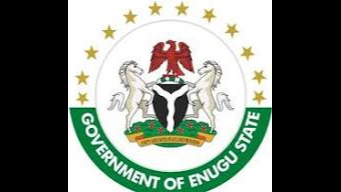
The Enugu State Government has pledged to upgrade secondary healthcare facilities across its 17 Local Government Areas to reduce maternal and newborn mortality.
The commitment was made by the State Commissioner for Health, Prof. Emmanuel Obi, during a dissemination meeting on the assessment of health facilities for Comprehensive Emergency Obstetric and Newborn Care (CEmONC), in Enugu on Friday.
The meeting, themed “Strengthening Emergency and Newborn Care Through Evidence-Based Assessment,” was organised by the Enugu State Ministry of Health.
It was held in collaboration with the Federal Ministry of Health’s Sector-Wide Approach (SWAP) programme and Jhpiego, an affiliate of Johns Hopkins University, USA.
Prof. Obi explained that the initiative aimed to ensure Enugu had efficient secondary healthcare systems capable of providing emergency maternal and newborn care.
He noted that the state had already commenced its own facility assessment, which would now be harmonised with the CEmONC assessment.
“This is an official presentation of findings from the facility assessments conducted by the Federal Ministry of Health, the SWAP Office, and our State Ministry of Health,” he said.
He added that the upgrade would enable Enugu to access federal funding under the “Hope Health” programme and SWAP, based on performance-linked disbursement indicators.
Mrs Francisca Ewoh, SWAP Desk Officer, described the programme as part of Nigeria’s Health Sector Renewal Initiative aimed at reducing maternal and neonatal mortality nationwide.
According to her, pooled partner funds will be allocated to states that meet readiness requirements, with 35,000 dollars available per qualified facility in each council area.
“Eligibility is based on providing adequate infrastructure, utilities, and staffing in secondary healthcare centres.”
Dr Chinyere Ezendu, the Enugu State focal person for the CEmONC assessment, said only two facilities in the state met the basic standards for infrastructure, amenities, water, and electricity.
She added that none of the assessed facilities had the full capacity to manage neonatal complications.
“We are hopeful the findings will be used to develop actionable plans to reduce maternal and neonatal deaths in the state,” she said.
Dr Chioma Oduenyi, a representative of Jhpiego, reaffirmed their technical support to both the national and state-level SWAP efforts in facilitating the implementation process.(NAN)




